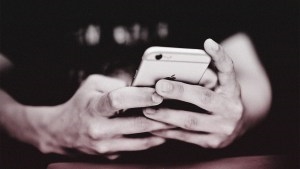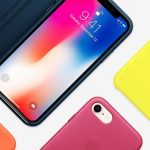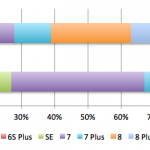Source: A “Sense Of Panic” At Apple As The Next Flagship iPhone’s Software Problems Persist
By Mark Sullivan , July 11, 2017
June was a tense month for the engineers and designers on Apple’s iPhone team with “a sense of panic in the air,” a source with knowledge of the situation tells me.
The company has been working feverishly to fix software problems in its hotly anticipated 10th-anniversary iPhone that could ultimately cause production and delivery delays, the source says. If the software problems aren’t resolved quickly, the new flagship iPhone could even launch with major features disabled.
The all-new iPhone, which some speculate could start at $1,200, is expected to debut at a press event this fall, and may be called the iPhone 8, iPhone Pro, or iPhone X. It’s expected to pack several new technologies that have never before been built into iPhones, and some of them are tricky to implement.
One of those is wireless charging. The iPhone 8–let’s call it that for now–will reportedly use a type of inductive charging, where the phone sits directly on a separate charging device. (Our source believes Apple is using the Qi wireless charging standard, or a variant of it.) The wireless charging components, which are provided by chipmaker Broadcom Ltd., are not the key issue, the source said; it’s the software that’s not ready for prime time.
If the company can’t get the technology to work smoothly in time, my source said, it might ship the first phones with inoperable wireless charging hardware, then enable the feature later on. There’s precedent for this approach: Over the years, Apple has sometimes shipped hardware but activated it later. The last example of this was Portrait Mode in the iPhone 7 Plus: The sensors and chips were built into the phone from the start, but the feature was activated only later on after the software was perfected.
Apple faces similar problems with the new 3D sensor. A recent Bloomberg report says that sensor is front facing and will be used to recognize the user’s face to unlock the phone. The report even suggests Apple may rely on the 3D sensor for authentication in lieu of the familiar Touch ID fingerprint scanner. Especially in light of the fact that Touch ID plays an integral role in the security of Apple Pay, it seems farfetched that Apple would suddenly abandon it for a brand-new, untested technology.
Without confirming that’s what the front-facing 3D sensor is for, my source says Apple has been struggling to get the sensor to work reliably. Again, the sensor hardware is not the problem, but rather the accompanying software.
The source believes Apple will likely have the 3D software working in time. But if not, the company could include the sensor in the phone anyway, and turn it on later on with a software update.
Apple declined to comment.
Screens And Sensors
The marquee feature of the new phone may be its new super-bright OLED display. That too has been a worry for Apple, and a potential cause of delays–not because of the quality of the hardware, but because of a scarcity of OLED manufacturing facilities around the world. Apple, which has never built a phone with an OLED display before, is reportedly getting the bulk of the screens from rival Samsung.
Earlier reports said that Apple was struggling to find a good place for the Touch ID fingerprint reader, now that almost the entire front of the phone will be taken up by display. One report today says Apple is still finalizing plans on the location of Touch ID, after months of trying different solutions, including embedding the sensor below the OLED display.
My source says the report is plausible, even at this late stage, and adds that in all likelihood, the fingerprint sensor will be embedded under the display.
The software problems are amplified by the enormous pressure to deliver the new phone on time, shortly after its likely announcement this fall; by the usual huge expectations for a new Apple product; and by the fact that the company is building technologies into the device that have never appeared in iPhones before. And by all accounts, it’s late in the game for Apple to be wrestling with problems as big as those described above.
The “iPhone 8” will be one of three new iPhones announced by Apple in the fall. The other two will be the successors to the current iPhone 7 and 7 Plus, and will likely be called the iPhone 7S and 7S Plus.
As usual, my source stresses that the new iPhones’ features can remain fluid until deep in the summer before a launch.
Apple is still finishing up key features in the “iPhone 8,” which could ship with some of its signature functionality not yet activated.
June was a tense month for the engineers and designers on Apple’s iPhone team with “a sense of panic in the air,” a source with knowledge of the situation tells me.
Fast Company , Read Full Story
(35)













